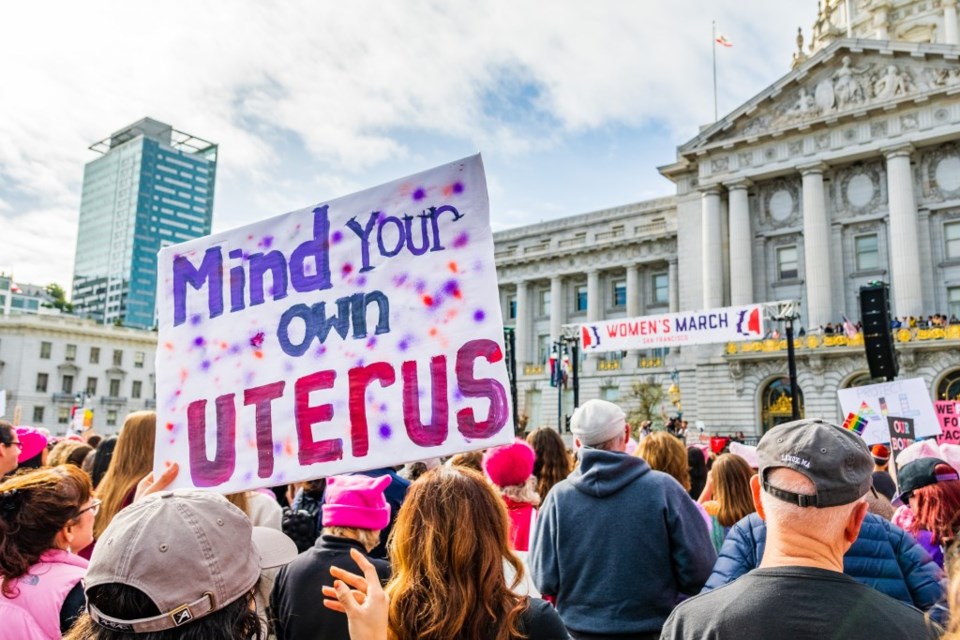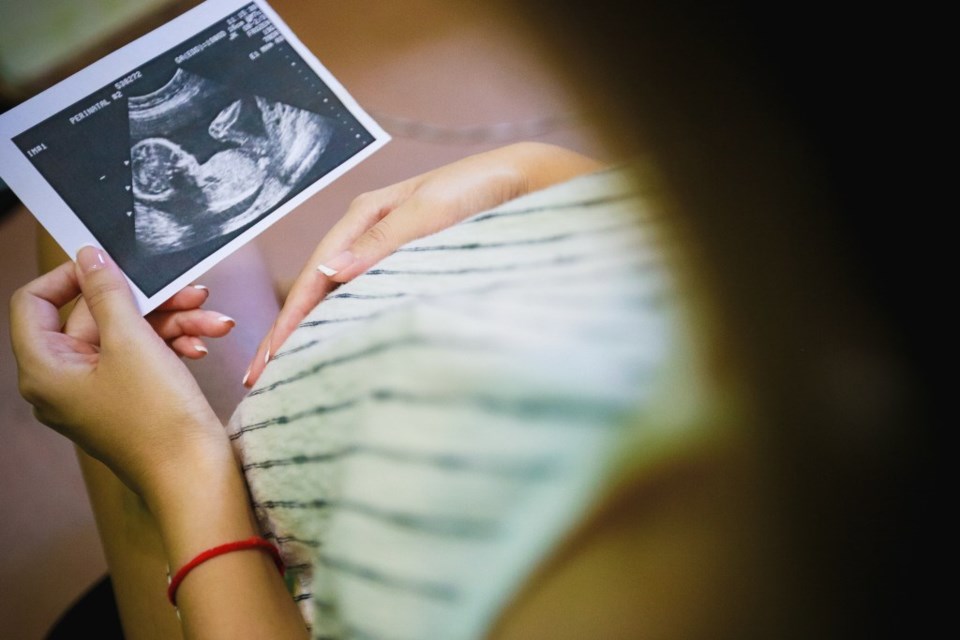Editor’s note: This story uses quotes from the owner of a local women’s clinic who discussed her opinions and perspective on Gov. Greg Abbott signing the Texas Heartbeat Act into law but asked to remain anonymous out of fear of harassment. In this story, her name has been changed to Mary Johnson. Her identity is known to Local Profile.
The world turned its attention to Paxton Smith, the 2021 valedictorian of Lake Highlands High School, at the beginning of June. While she was just your typical 18 year old, her speech-turned-political statement drew the nation toward an issue that, while specific to Texas, broadened its horizons to a country full of anti-abortion legislation.
On May 19, Gov. Greg Abbott signed the Texas Heartbeat Act into law, which bans abortions after a fetal heartbeat can be detected. But a fetal heartbeat can be detected as early as six weeks — long before most women even know they’re pregnant.
And while the bill makes exceptions for abortions in medical emergencies, it doesn’t for victims of rape or incest. The bill also gives citizens — who don’t have to live in Texas or have a connection to the person or provider — the right to sue abortion providers or others who assist someone getting an abortion.
"I cannot give up this platform to promote complacency and peace when there is a war on my body and a war on my rights,” Smith said during her speech. “A war on the rights of your mothers. A war on the rights of your sisters. A war on the rights of your daughters. We cannot stay silent.”

The Texas Heartbeat Act
But Smith is not alone in the “war” over a woman’s right to get an abortion in Texas, and her graduation speech wasn’t the last time she attempted to raise awareness. A couple of weeks after her graduation speech, on June 6, she joined “Youth at Stake” for a pro-choice rally outside the Texas Capitol, KXAN reported.
“The government that is supposed to represent our voices is taking away our voices,” Smith said at the rally.
It wasn’t Texas Republicans first surpression of abortion rights in Texas. The state already has some of the strictest laws when it comes to abortions. Most abortions were already banned after about 20 weeks, and pill-induced abortions were barred at 10 weeks, The Texas Tribune reported. The state requires abortion providers to perform a sonogram on the woman 24 hours before the abortion as well as provide information about medical risks, abortion alternatives and assistance for those who decide to follow through with their pregnancy.
But some Texas Republicans felt it wasn’t enough. Nearly every Republican senator and more than 60 members of the Texas House authored or sponsored the heartbeat bill, The Tribune reported. It was a strategic move. Many other states have tried to pass similar legislation — only for it to stall in the court system as abortion providers sued the state to keep the bill from taking effect. Since Texas’ version of the heartbeat bill leaves enforcement up to private citizens, this means no state officials are enforcing the Texas Heartbeat Act.
In other words, there’s no one to sue.
Now, with the Texas heartbeat bill’s Sept. 1 effect date on the horizon, women like Smith are wondering what the future of abortion access in Texas will look like. But it’s hard to see. And even women’s clinics, on both sides of the issue, struggle to understand what the future holds.

Pro-life versus pro-choice
Without the ability to sue the state, pro-choice organizations are speaking out against the Texas Heartbeat Act like Smith. Sarah Wheat, chief external affairs officer at Planned Parenthood of Greater Texas, called Texas’ abortion ban “one of the most extreme abortion bans in the U.S.” She claimed it is the result of “a high level of stigma” surrounding abortion in the state.
Amid all the activism in the Texas Legislature to prevent abortions, there is, according to Wheat, a lack of focus on expanding access to preventive health care or birth control — which is something she said would be desperately needed once the abortion ban goes into effect in early September. Texas, she said, has one of the highest rates of uninsured adults in the U.S.
But for others, the heartbeat bill is seen as a triumph for life. Such is the case for Mary Johnson, the owner of a local women’s clinic. For clinics like Johnson’s that take a pro-life approach to women’s health, the bill is a step in the right direction for their mission to meet a woman’s medical needs by “encouraging Christ-centered, healthy lifestyle decisions.”
“[We] want to applaud our lawmakers who are doing everything they can to fight for life,” Johnson said. “We praise God for them and what they're trying to do. Lives will absolutely be saved because of this.”
However, Wheat said most of the patients they see at their health centers are uninsured and earn low incomes. “For many patients, this means they have to delay preventive health care appointments, like cervical cancer screenings and testing for sexually transmitted infections and don’t have routine access to the birth control method that works best for them.”
And because Texas’ abortion ban doesn’t provide any additional support or access to women’s health care, Wheat said it will overwhelmingly affect groups already struggling the most.
“If Texas’ abortion ban takes effect on Sept. 1, it will disproportionately impact communities of color and patients facing barriers in securing the time off work, childcare, transportation and funds needed to travel outside of Texas to access an abortion,” Wheat said.

The future of Texas abortion access
Despite her speech in protest of the Texas Heartbeat Act, when it does go into effect on Sept. 1, abortion access will look much different for reproductive-aged women like Smith, as they will have to travel to another state to get a safe abortion after six weeks to avoid legal action.
According to the American Pregnancy Association, most women find out they’re pregnant between four-seven weeks. However, visible symptoms like morning sickness don’t usually start until the sixth week. And oftentimes, it takes about two-three weeks after a missed period before the body produces enough of the pregnancy hormone to be detected in an at-home pregnancy test.
Because at-home pregnancy tests may show false negatives early in the pregnancy, to truly confirm a pregnancy, women need to be seen by a physician. And if a woman is using a contraceptive, such as birth control or condoms, that fails without their knowledge, they may not know they’re pregnant until it’s too late.
And Johnson said since ultrasounds to confirm pregnancy aren’t supposed to be done until about six weeks, this, in turn, could lead more women to seek unsafe ways to get an abortion — before they even know if their pregnancy is viable.
Things like the abortion pill — obtained through illegal means — are “the biggest enemy of us all,” Johnson said. And if women who seek abortions are too afraid to seek help from knowledgeable women’s clinics, they may look to buying abortion pills on illegal websites without the guidance of a doctor.
“They could be doing severe harm to their bodies, and they're not even seeing a doctor at any point,” Johnson said. “So, if they are taking the abortion pill after being 10 weeks pregnant, her fatality rate increases by 38% if she hasn't seen a doctor.”
Johnson has already seen a spike in fear among women who seek their help. Since the bill was signed, Johnson said the clinic’s no-show rate (the number of women who schedule appointments but don’t show up) has already escalated in the weeks since Abbott signed the bill into law. Most of the women — about 70% — who visit Johnson’s clinic are “abortion-minded,” meaning they are seeking help to get an abortion.
Because of the Texas heartbeat bill, Johnson said many women are worried the clinic would turn them in.
“Right now, fear is rampant even more so than before,” Johnson said. “And I think just because there's a lot of lack of clarity on the patient's side on what this potential law could mean for them. And, of course, I think those who oppose what we do are getting louder and louder and twisting the truth.”
All in all, the Texas Heartbeat Act, while in line with Johnson’s clinic’s mission, will force the clinic to rethink what they do and how they do it. And while Johnson feels that more lives overall will be saved because of the heartbeat act, she worries about the health and safety of women who are abortion-minded rather than “abortion-vulnerable.”
“For those who fall in more of the abortion-minded category, that's where [there’s] a big question mark,” Johnson said. “I'm concerned — I have great concerns.”




